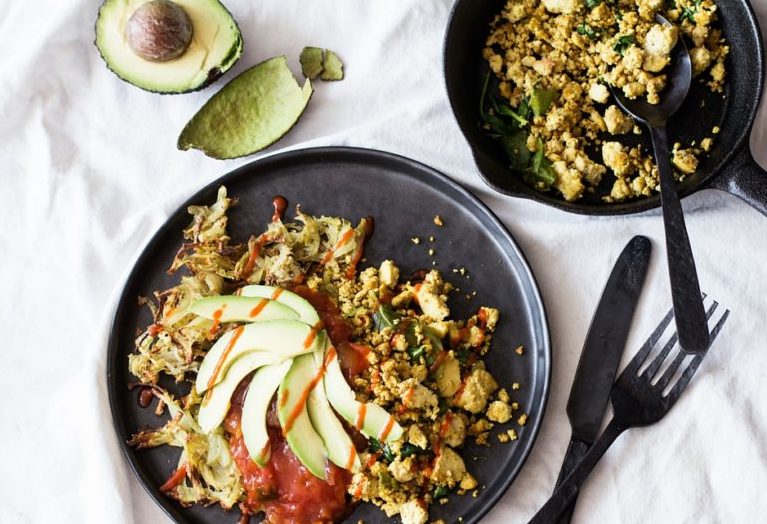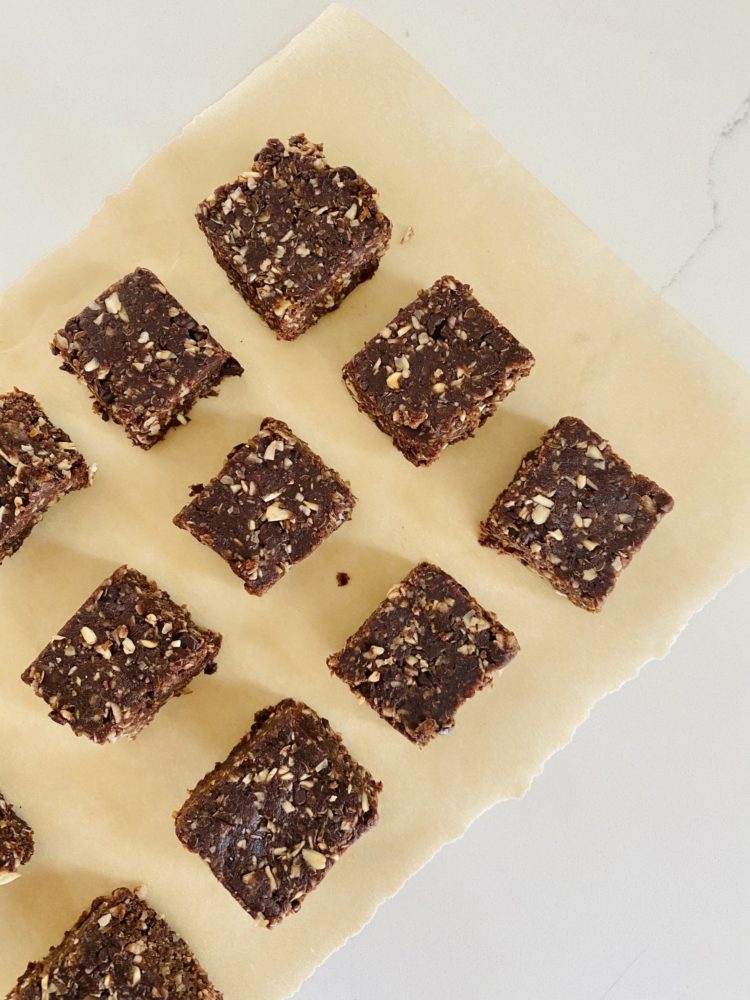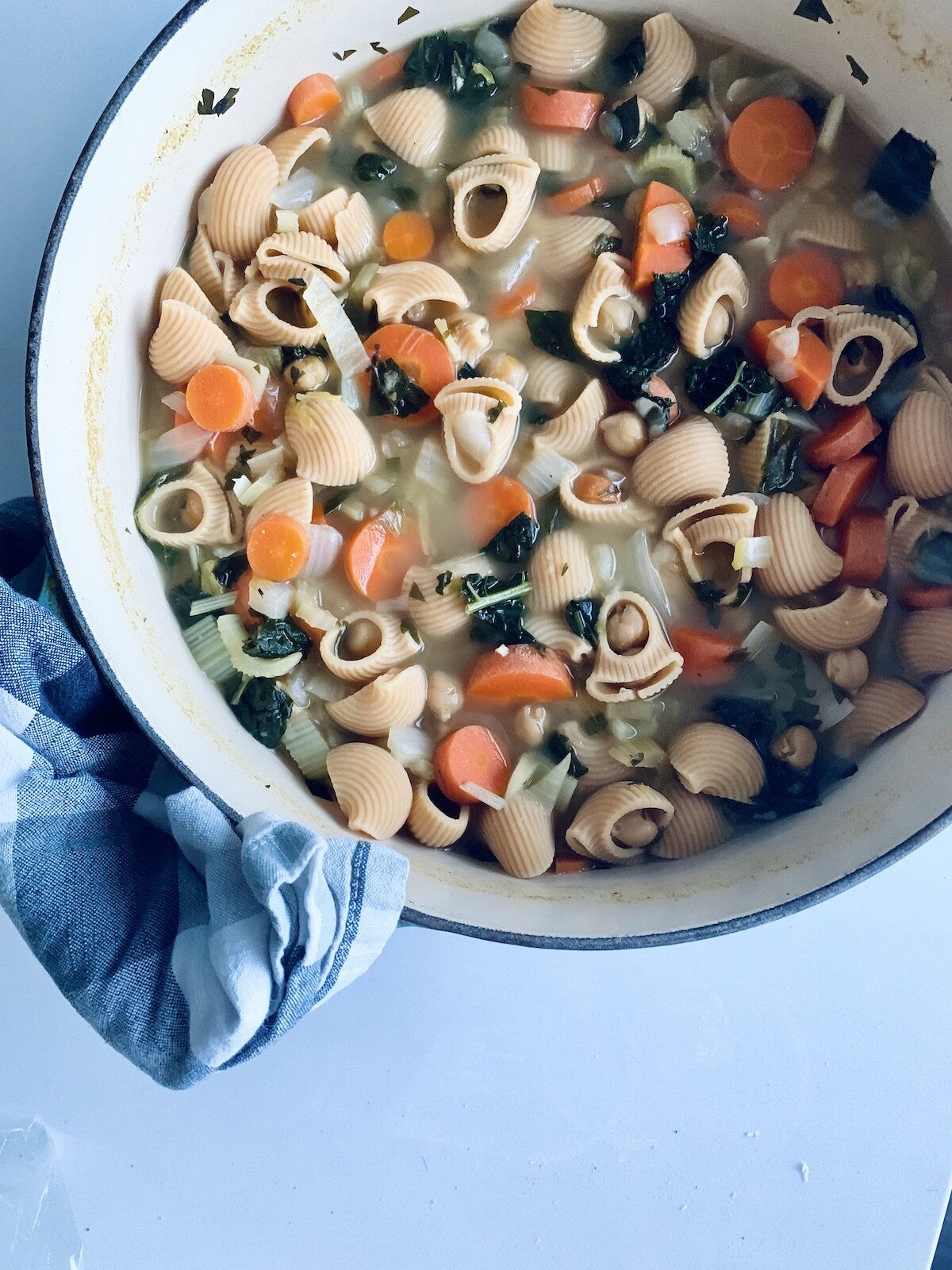If you eat a plant-based diet or a vegetarian or vegan diet, you’ve probably heard that zinc is a nutrient you need to be aware of. But the truth is, there are plenty of zinc rich vegan foods making it easy for plant-based women like you to meet your needs! In this article we’ll talk about why getting enough zinc is important for your health in the first place, how much plant-based or vegan women need, the vest vegan sources of zinc, and easy ways to get enough zinc.

What is zinc?
You might be wondering why you need zinc in the first place. Zinc is a mineral involved in many different processes in the body. Zinc plays a crucial role in various physiological functions, including cell growth, immune function, DNA synthesis, wound healing, and protein metabolism. It is also known for its antioxidant properties, helping to protect cells against damage from free radicals.
Additionally, zinc plays a significant role in supporting a healthy immune system. It helps in the production and function of immune cells, aiding in the body’s defense against infections and illnesses. Zinc is also essential for proper sense of taste and smell and is involved in the production of enzymes that facilitate digestion.
Why is zinc important?
Zinc is an essential mineral necessary for over 300 different enzymes in the body! Adequate zinc offers many health benefits. Zinc is important for taste and smell, immunity, growth and development, metabolism, reproduction, and the proper development of the fetus. Additionally, zinc plays a significant role in maintaining healthy skin, promoting wound healing, and reducing the appearance of scars.
As an antioxidant, zinc also supports healthy aging and helps the body repair DNA damage caused by environmental factors like toxins, free radicals, poor diet, alcohol, and stress. Therefore, ensuring an adequate intake of zinc is crucial for overall health and well-being.
Zinc is important for hair health as well. It is essential for the functioning of hair follicles, impacting hair growth cycles and aiding in hair follicle recovery. Zinc helps to keep the scalp healthy and promotes hair growth, making it an essential nutrient for maintaining strong, healthy hair.
How much zinc do you need?
The recommended dietary allowance (RDA) for zinc varies depending on age, sex, and life stage. For adult women aged 19 years and older, the RDA is 8 mg per day. However, during pregnancy, the requirement increases to 11 mg per day, and during lactation, it increases further to 12 mg per day.
It’s important to note that the absorption of zinc from plant-based sources may be lower compared to animal-based sources due to factors such as phytates and fiber.
Because the zinc in plant-based foods is not as easily absorbed as in animal-based foods, it’s unclear whether plant-based and vegan women need to eat more zinc than omnivores. Below, I’ve included the standard recommendation for zinc and also the recommendation for vegan women (vegan recommendations are in parentheses). If you eat a completely vegan diet, it’s probably wise to aim a little higher than the standard, but it’s not totally clear if you have to aim as high as the plant-based recommendation.
Zinc Needs for Vegan Women
Here are the daily zinc needs for women, according to the National Institutes of Health. The recommendation for plant-based or vegan women is in parentheses.

How can you get enough zinc? Tips for vegan and plant-based women
Meeting zinc needs on a plant-based, vegan, or vegetarian diet is totally possible. Many plant-based foods contain zinc. If you are concerned about your zinc intake, here are a few tips to help you meet your needs:
- Include a variety of zinc-rich plant-based foods in your diet such as oats, lentils, tofu, nuts, seeds, and whole grains.
- Opt for whole grains over refined grains to maximize zinc intake.
- Cook legumes and whole grains before consuming to increase zinc absorption.
- Toast seeds and nuts before eating to enhance zinc absorption.
- Avoid taking iron supplements with meals high in natural sources of zinc to prevent interference with absorption.
- Make sure to consume adequate protein in meals that are high in zinc to optimize absorption.
- Choose leavened whole grain and sprouted grain breads or sourdough breads
- Sprinkle wheat germ on oatmeal or add to smoothies or baked goods
- Sprout beans, grains, and nuts to make zinc (and other minerals) easier to absorb, or buy these foods already sprouted
- If you are pregnant or breastfeeding, consider a prenatal multivitamin that contains zinc
- Consult with your doctor before starting a zinc supplement to ensure you stay within safe limits.
Are Zinc Deficiencies Common?
While overt zinc deficiency is uncommon, it is possible that low zinc levels may indirectly contribute to other conditions. Getting enough zinc rich vegan foods is particularly important for women during pregnancy to help with fetal cell growth and brain development.
During pregnancy, the demand for zinc increases to support fetal cell growth and development, including brain development. Inadequate intake of zinc-rich foods during pregnancy can lead to a higher risk of complications, such as low birth weight and preterm delivery. It is, therefore, essential for vegan women who are pregnant or planning to become pregnant to ensure a sufficient intake of zinc-rich foods in their diet.
In addition to pregnancy, zinc deficiencies can also impact immune function and overall health. Low levels of zinc have been associated with impaired immune response, increased susceptibility to infections, and delayed wound healing. It can also affect the sense of taste and smell, leading to a decreased appetite and potential nutrient deficiencies.
To avoid these potential complications and ensure optimal health, it is advisable for vegans to pay attention to their zinc intake and include a variety of zinc-rich plant-based foods in their diet.
Are Vegans More Likely to Develop a Zinc Deficiency?
Zinc bioavailability may be lower in plant-based foods due to the presence of phytic acid, which is found in many plant foods. Phytic acid acts as an inhibitor of zinc absorption by binding to zinc in the intestine, forming an insoluble complex that hinders its uptake by the body. This raises the question of whether or not vegans are at higher risk of developing zinc deficiency.
In numerous studies, zinc levels in vegans have been shown to have lower blood zinc levels than meat eaters, on average. In some studies, the levels are still within the normal range. In others, the vegan zinc levels dip below the normal range. Because of this, it is important for women eating vegetarian diets, vegan diets, or other types of plant-based diets to be aware of their zinc intake.
Best Vegan Zinc Rich Foods
Zinc is found in small amounts in plant-based foods. Top zinc rich vegan foods include whole grains, beans, lentils, nuts, and seeds.
If zinc is found in plant-based foods, then why is it so important to make sure you’re getting enough? When it comes to getting enough zinc from plant-based foods, a plant compound called phytate can get in the way. Phytates interfere with zinc absorption, so it’s best to rely on foods that are lower in phytates and therefor more well-absorbed.
Sprouting helps improve absorption, so sprouted grains, sprouted grain breads, sprouted nuts, and sprouted beans are good sources. Whole grain breads are also good sources of zinc because the leavening process in bread making breaks the bond between phytates and zinc.
Protein also increases zinc absorption, so beans and tempeh are food good sources that contain both zinc and protein.
Here are some of the best plant-based food sources of zinc:
- Oats
- Adzuki Beans
- Lentils
- Black Beans
- Tofu
- Tempeh
- Buckwheat
- Quinoa
- Pumpkin Seeds
- Sesame Seeds
- Hemp Seeds
- Chia Seeds
- Flax Seeds
- Cashews
- Pecans
- Pine Nuts
- Almonds
- Walnuts
- Green Peas
- Shiitake Mushrooms
- White Mushrooms
- Avocados
- Miso Paste
Whole grains high in zinc
When it comes to incorporating zinc into your diet, whole grains can be a beneficial source. While they may not provide as much zinc as other foods, they offer a variety of nutrients that contribute to overall health.
Whole grains like wheat, quinoa, rice, and oats contain zinc, but their absorption may be reduced due to the presence of phytates. These compounds bind to zinc and limit its uptake in the body. Despite this, consuming whole grains is still a nutritious choice as they are rich in fiber, B vitamins, magnesium, iron, phosphorus, manganese, and selenium.
Nervous about carbs? Read this post.
Legumes high in zinc
Legumes are a fantastic plant-based source of zinc that can help vegans and vegetarians meet their daily needs. While legumes contain substantial amounts of zinc, it is important to note that their absorption can be hindered by phytates, antinutrients present in these foods. Despite this, legumes like chickpeas, lentils, and beans can still be a valuable source of zinc in a plant-based diet.
For example, cooked lentils provide 12% of the Daily Value (DV) for males and 16% for females in a 100-gram serving. Additionally, garbanzo beans (chickpeas) and other legumes also contain significant amounts of zinc.
To maximize the absorption of zinc from legumes, it is recommended to use processing methods such as heating, sprouting, soaking, or fermenting. These techniques can help reduce the phytate content and improve the bioavailability of zinc from legumes.
Zinc rich fruits and vegetables
Many fruits and vegetables contain significant amounts of zinc, making them excellent options for vegetarians and vegans looking to boost their zinc levels.
Some zinc-rich fruits include grapefruit, kiwi, and corn. These fruits may not contain as much zinc as animal foods, but they can still contribute to your daily intake of this essential mineral. Additionally, nuts like cashews and seeds like pumpkin seeds are excellent sources of zinc for those following a plant-based diet. Other zinc-rich vegetables include spinach, beans, and mushrooms, which can easily be incorporated into various dishes to boost your zinc intake.
Need some easy meal inspiration?
Grab my free 62 Plant-based Meal Ideas guide filled with easy ideas for breakfast, lunch, dinner, and snacks.


